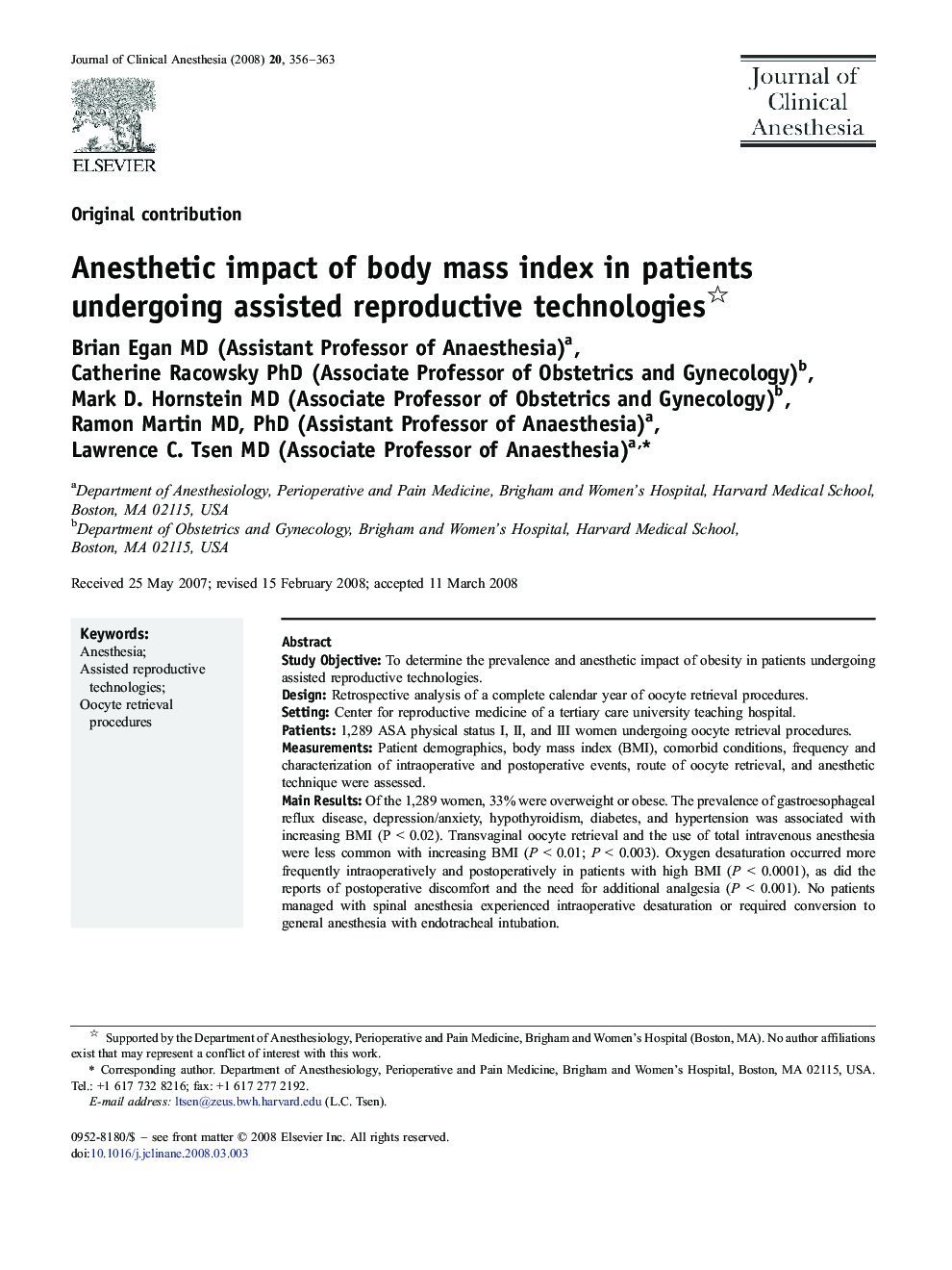| Article ID | Journal | Published Year | Pages | File Type |
|---|---|---|---|---|
| 2763686 | Journal of Clinical Anesthesia | 2008 | 8 Pages |
Study ObjectiveTo determine the prevalence and anesthetic impact of obesity in patients undergoing assisted reproductive technologies.DesignRetrospective analysis of a complete calendar year of oocyte retrieval procedures.SettingCenter for reproductive medicine of a tertiary care university teaching hospital.Patients1,289 ASA physical status I, II, and III women undergoing oocyte retrieval procedures.MeasurementsPatient demographics, body mass index (BMI), comorbid conditions, frequency and characterization of intraoperative and postoperative events, route of oocyte retrieval, and anesthetic technique were assessed.Main ResultsOf the 1,289 women, 33% were overweight or obese. The prevalence of gastroesophageal reflux disease, depression/anxiety, hypothyroidism, diabetes, and hypertension was associated with increasing BMI (P < 0.02). Transvaginal oocyte retrieval and the use of total intravenous anesthesia were less common with increasing BMI (P < 0.01; P < 0.003). Oxygen desaturation occurred more frequently intraoperatively and postoperatively in patients with high BMI (P < 0.0001), as did the reports of postoperative discomfort and the need for additional analgesia (P < 0.001). No patients managed with spinal anesthesia experienced intraoperative desaturation or required conversion to general anesthesia with endotracheal intubation.ConclusionsPatients with high BMI have a greater prevalence of comorbid conditions, require alterations in anesthetic and oocyte retrieval management, and more often experience intraoperative and postoperative events.
